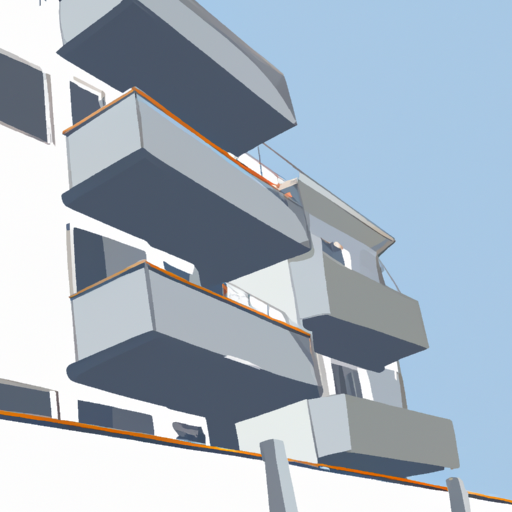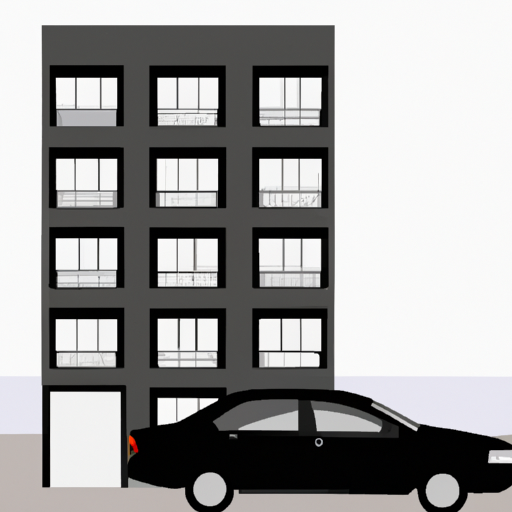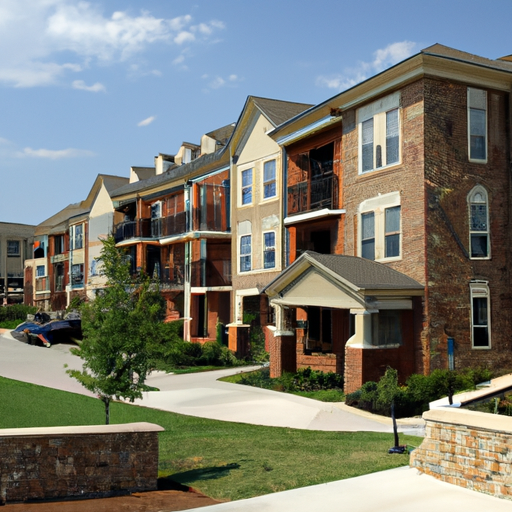Flexibility of Renting

When it comes to making a decision about whether to rent or buy a home, many people are faced with the dilemma of weighing the pros and cons of each. One advantage of renting a home instead of buying is the flexibility it provides.
Renting a home offers the flexibility to move quickly and easily, without the hassle of selling a home or going through a long and complicated relocation process. This is especially important for those who are looking to move to a new city, to take a new job, or to try a completely different lifestyle. With renting, you can simply sign a new lease and move in within days.
Renting a home also offers the flexibility to rent different types of homes. Whether you’re looking for a single-family home, a townhouse, an apartment, or something else, you can easily find a rental unit that meets your needs. With renting, you’re not locked into any particular type of home and can easily switch if you decide you need something different.
Renting also offers the flexibility to live in a variety of locations. You can easily move from one neighborhood to the next, or from one city to the next, without having to worry about selling a home or making a large financial commitment. This is an especially attractive option for those who want to explore different areas and try out different lifestyles without having to commit to a long-term purchase.
Renting a home also offers the flexibility to rent for shorter periods of time, such as a month or two. This is great for those who plan to move soon, or those who are just looking for a short-term rental to try out a new city. With renting, you’re not tied down to a long-term commitment and can easily move on when you’re ready.
Finally, renting a home offers the flexibility to change your living arrangements when needed. If your living arrangements change due to a job change, a family situation, or something else, it’s easy to find a new rental unit that meets your needs. With renting, you can make changes to your living arrangements quickly and easily, without having to worry about selling a home or making a long-term financial commitment.
When it comes to making a decision about whether to rent or buy a home, the flexibility that renting provides is a major advantage. It offers the freedom to move quickly and easily, to rent different types of homes, to live in a variety of locations, to rent for shorter periods of time, and to make changes to your living arrangements when needed. This flexibility is a major benefit for those who want to explore different options and try out different lifestyles without having to commit to a long-term purchase.
The Cost of Ownership

When it comes to deciding between renting a home or buying one, the costs associated with each must be taken into consideration. The cost of ownership is an important factor to consider when deciding which route to take.
Owning a home can be quite expensive. The primary cost associated with owning a home is the cost of the mortgage. Mortgage payments typically range from hundreds to thousands of dollars a month, depending on the size and location of the home. Additionally, homeowners are responsible for paying taxes, insurance, maintenance and repairs, which can add up quickly.
Renting a home can be far less expensive than owning one. Renters are typically only responsible for the rental fee each month, which can be substantially cheaper than a mortgage payment. Additionally, there are often no additional costs associated with renting, such as taxes or maintenance fees.
In addition to the cost of ownership, there is also the cost of the initial purchase. Buying a home requires a large down payment, usually in the tens of thousands of dollars. This is a significant cost that is not associated with renting.
When considering the cost of ownership, it is important to think about the long-term costs as well. Owning a home requires a significant amount of time and money to maintain and repair. These costs can add up over time and can be quite expensive.
Renting a home is often more affordable than buying one. It requires less of an initial investment and fewer additional costs. Additionally, the responsibility for maintenance and repairs typically falls to the landlord, not the renter.
The cost of ownership is an important factor to consider when deciding between renting or buying a home. Owning a home can be quite expensive, with mortgage payments, taxes, insurance, and repair costs adding up quickly. Renting a home, on the other hand, is often less expensive, with fewer long-term costs and responsibilities. Ultimately, the decision between renting and buying a home depends on the individual’s financial situation and lifestyle.
Maintenance Responsibilities

When it comes to deciding whether to rent or buy a home, one of the biggest advantages to renting over buying is the responsibility for maintenance and repairs that falls on the landlord. Renting a home means that the landlord is responsible for all major maintenance, such as replacing a roof, repairing a broken air conditioner, or dealing with a leaky faucet. This can be a huge relief to many renters, especially those who don’t have the desire or the skills to fix these issues on their own.
On the other hand, when homeowners purchase a home, they become fully responsible for any and all maintenance and repairs that need to be done. This can be a huge burden on homeowners, especially if they don’t have the necessary skills or the budget to pay for all of the repairs that need to be done. This can be a huge financial burden, especially if the homeowner is on a tight budget.
However, there are some advantages to being a homeowner when it comes to maintenance and repairs. For example, homeowners have the freedom to choose who does the repairs and at what cost. Homeowners can also choose to do the repairs themselves, which can save them money in the long run. Plus, homeowners have the opportunity to customize their home to their own tastes, making improvements and repairs as they see fit.
Renting and owning a home both have their own set of pros and cons when it comes to maintenance and repairs. Those who decide to rent can have the peace of mind that comes with knowing that major repairs are the responsibility of the landlord, while those who choose to buy can have the freedom and flexibility to customize their home and make repairs as they see fit.
No matter which route you choose, it’s important to consider all of the maintenance and repair responsibilities and determine which one is right for you. Taking a close look at your financial situation, lifestyle, and preferences will help you make the best decision for you and your family.
Tax Benefits of Homeownership

The debate between renting and buying is a long one, with both sides presenting valid arguments for their position. When it comes to homeownership, however, there are some undeniable advantages that make it a more attractive option than renting. One of the biggest advantages of owning a home is the tax benefits associated with it.
When it comes to taxes, homeownership offers some unique benefits that renting does not. Homeowners can deduct mortgage interest payments from their taxes, allowing them to save money on their tax bill. Homeowners can also deduct property taxes, making it easier for them to save money on their taxes. Additionally, if you make energy-efficient upgrades to your home, you may be eligible for energy tax credits. These credits can save you money on your taxes, and make your home more energy efficient.
Another tax advantage of homeownership is the ability to deduct certain home-related expenses. Homeowners can deduct repairs and improvements to their home, as well as the cost of owning and maintaining their home. This can include the cost of landscaping, painting, and other home-related expenses. Homeowners can also deduct points paid on their mortgage, which can save them a significant amount of money on their taxes.
In addition to the tax benefits of homeownership, there are other advantages as well. Owning a home can provide you with greater stability and security, as well as peace of mind knowing that you have an asset to call your own. Homeowners also have access to special loans and programs that renters do not, such as FHA loans that allow you to purchase a home with a lower down payment.
Finally, homeownership can provide you with a sense of pride and satisfaction. Owning a home is a major milestone, and it can give you a sense of accomplishment and pride knowing that you have achieved this goal. Owning a home also allows you to build equity, which can be used to fund future investments or to save for retirement.
In conclusion, there are many advantages to homeownership. The tax benefits alone make it a more attractive option than renting, and the security, stability, and sense of accomplishment that come with homeownership make it an even more appealing choice. Whether you’re looking for an investment, a place to call your own, or a way to save for the future, homeownership can offer numerous benefits that renting simply cannot.
Location and Mobility

When it comes to making the decision between renting and buying a home, location and mobility are two of the most important factors to consider. Renters have the unique opportunity to move to different locations quickly and easily, allowing them to experience different areas and explore new neighborhoods. This can be especially beneficial to those who are looking to be in a certain area for a short period of time, such as college students or those with short-term jobs.
The ability to move quickly and easily is a major advantage of renting over buying. Buying a home requires more commitment, as it may take months or even years to find a property in the desired location, and even longer to complete the sales process. Renting, on the other hand, can often be done in a matter of days or weeks, making it much easier for those who don’t have the time or resources to commit to buying a home.
Renting also offers the advantage of flexibility. If a tenant decides to move to a different area or change their lifestyle, it is much easier to do so when renting a home. With the ability to move to a different city, state, or even country, renters can explore different cultures and lifestyles without being tied down to a particular property.
For those who are looking for a more cost-effective option, renting is often the best choice. Renters can find a property that fits their budget and save money on monthly payments, as opposed to the larger upfront costs associated with buying. Renters also don’t have to worry about the ongoing costs of maintaining a property, such as taxes, repairs, and landscaping, as these costs are often taken care of by the landlord.
Location and mobility are key factors when it comes to deciding whether to rent or buy a home. Renters have the unique opportunity to move quickly and easily, allowing them to explore new areas and cultures without the commitment of buying a property. Renting also offers the advantage of flexibility and cost-effectiveness, making it an attractive option for those who are looking for a more temporary living situation. With the right research and preparation, renters can find the perfect home and take advantage of all the unique benefits that come with renting.
Appreciation and Equity

When it comes to choosing between buying and renting a home, one of the most important considerations is the appreciation and equity you will receive from each. Both options have their advantages, but if you want to maximize your appreciation and equity, renting can be a more beneficial choice.
For starters, those who rent a home will benefit from the appreciation of their rental property without having to worry about the costs associated with buying a home. Renters are able to take advantage of the natural appreciation of their rental home without having to worry about paying for the mortgage or other costs associated with purchasing a home.
It also provides more flexibility to those who rent because they can pick up and move to a different property if they feel the appreciation is no longer beneficial. People who purchase a home are locked in for the long-term, so if the appreciation is no longer beneficial to them, they can’t simply move to a different property.
Another advantage for renters is that they can take advantage of the equity that comes from their rental income. This equity can help them build a nest egg for their future and provide them with more financial security. Those who buy a home don’t have the same opportunity to build equity, as they have to focus on paying down their mortgage.
Additionally, renters are able to save more money over time because of the tax benefits associated with renting. Renters can deduct their rental payments from their taxes, while those who purchase a home cannot.
Finally, renting a home allows you to have more freedom. You don’t have to worry about the upkeep of the property, and you can move to a different property if you feel the appreciation and equity isn’t beneficial anymore. Renters also don’t have to worry about the cost associated with buying a home, such as a down payment, closing costs, and other fees.
The advantages of renting vs. buying a home are clear when it comes to appreciation and equity. Renters are able to take advantage of the natural appreciation of their rental property, build equity from their rental income, save money due to the tax benefits associated with renting, and have the freedom to move if they feel the appreciation or equity is no longer beneficial. Ultimately, those who rent a home can enjoy the benefits of appreciation and equity without the long-term commitment that comes with buying a home.
Commitment of Homeownership

The commitment of homeownership is something that can be both a blessing and a curse; it can be the dream of a lifetime achieved, or it can be a nightmare of financial strain and emotional stress. However, the decision to purchase a home is not for everyone, and there are many advantages to renting over owning a home.
For starters, there’s the question of financial commitment. When you buy a home, you’re not just committing to a mortgage payment each month, you’re also making a commitment to pay for things like taxes, insurance, and any necessary repairs or renovations. With renting, you’re only responsible for a monthly rent payment and can often times spread out the costs of any necessary repairs or maintenance over a longer period of time.
Another advantage of renting over buying is the flexibility it can offer. When you rent a home, you don’t have to worry about selling your home if you decide to move. All you have to do is give your landlord proper notice, and you can be out the door as soon as possible. When you own a home, you have to go through the time and expense of listing, selling, and moving, which can be a hassle.
Flexibility also comes into play with the terms of your lease. When you rent, you’re able to negotiate the length of your lease, the rent amount, and the amenities you’d like included in the home. With homeownership, you’re stuck with what you’ve got, and if that needs to change, it’s up to you to foot the bill.
Renting also allows you to get the lifestyle you desire without having to commit to a home in a certain location. Whether you’re looking for a high-end apartment in the city, or you’re looking for a cozy cottage in the countryside, with renting you’re able to pick up and move to a new location when your lease is up. With homeownership, you’re stuck with the location you chose.
The opportunities for creativity and experimentation are also higher when you rent. With homeownership, you’re limited by your budget and the value of your home, but with renting, you’re free to get creative with how you decorate the space. This allows you to explore new trends and styles without worrying about the commitment of homeownership.
Finally, renting can be a great way to save money in the long run. If you rent for a few years and then decide to buy a home, you’ll have saved up a bit of a down payment, and you’ll have a better idea of the type of home you’d like to purchase. Plus, you’ll have had the opportunity to explore different neighborhoods and get a better idea of where you’d like to settle down.
In the end, the decision of whether to rent or buy a home comes down to a personal choice. If you’re looking for flexibility, creativity, and the chance to explore different lifestyles, then renting is the way to go. But if you’re looking for a commitment and the chance to put down roots in a certain location, then homeownership is the way to go. Either way, the decision is yours.


